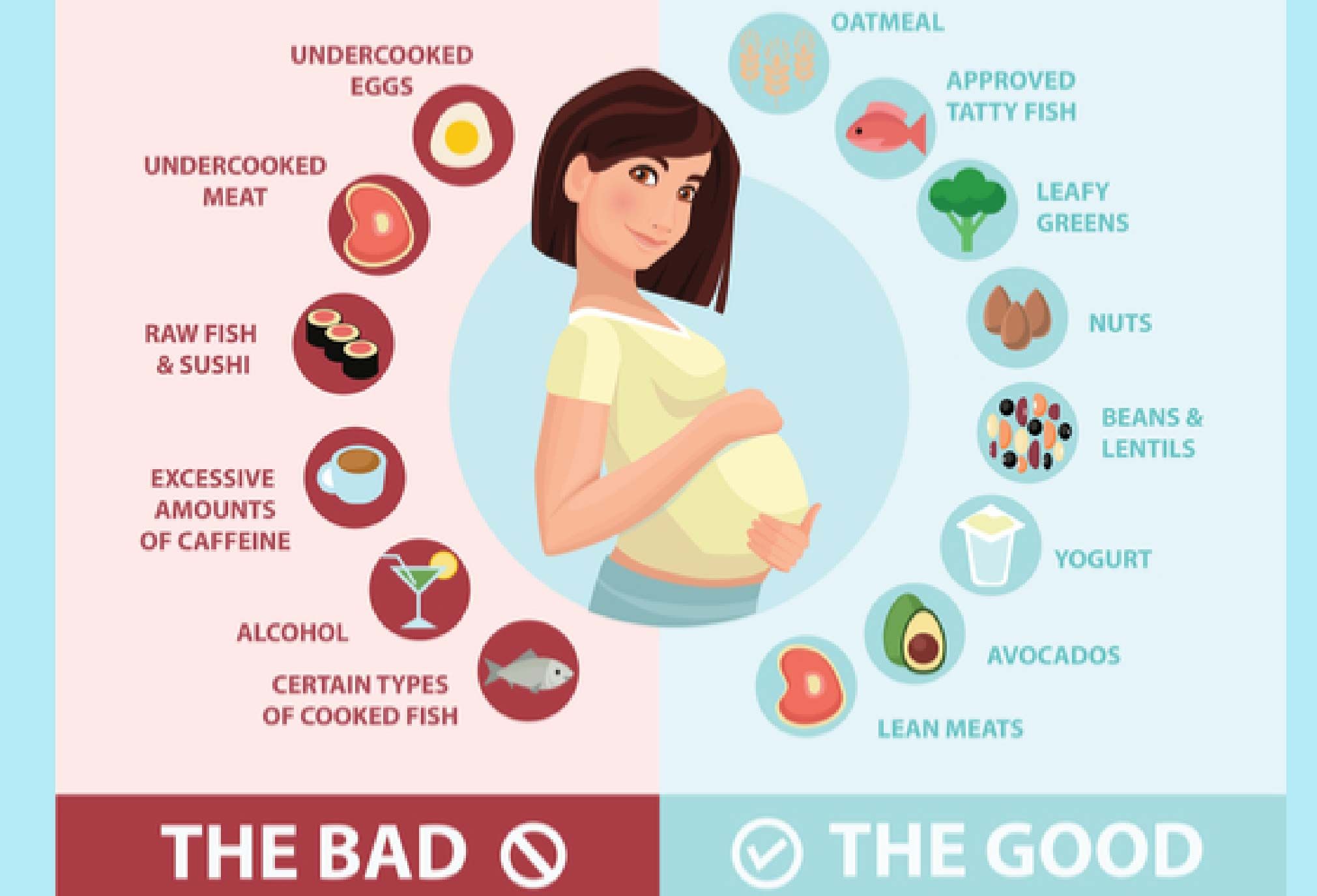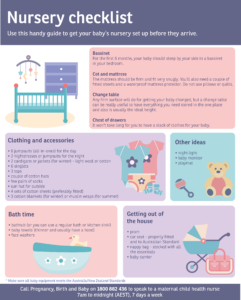A healthy pregnancy is essential for the well-being of both the mother and the baby. Key factors include proper nutrition, regular exercise, and prenatal care.
Pregnancy is a transformative journey filled with joy and anticipation. Expecting mothers experience numerous physical and emotional changes during this period. Focusing on a balanced diet and staying active can significantly enhance overall health. Regular check-ups with healthcare providers ensure that both mother and baby receive the necessary care.
Staying informed about pregnancy stages helps manage expectations and prepares parents for the journey ahead. Understanding the importance of mental well-being during this time is equally crucial, as it fosters a supportive environment for the growing baby. Embracing these elements contributes to a thriving pregnancy experience.

Credit: ovumhospitals.com
The Foundations Of A Healthy Pregnancy
A healthy pregnancy is vital for both mother and baby. It lays the groundwork for a safe and joyful journey. Proper care, nutrition, and understanding are essential. Below are key aspects that form the foundation of a healthy pregnancy.
Importance Of Prenatal Care
Regular prenatal care is crucial for monitoring health. It helps in identifying potential issues early. Here are some benefits of prenatal care:
- Early Detection: Identifies health problems early.
- Guidance: Provides information on nutrition and wellness.
- Support: Offers emotional support and resources.
- Monitoring: Tracks baby’s growth and development.
Schedule visits with a healthcare provider regularly. Follow their advice on tests and screenings. Consistent care enhances the chances of a healthy pregnancy.
Understanding Genetic Screening
Genetic screening helps identify inherited conditions. Parents can make informed decisions based on results. Here are key points about genetic screening:
| Type of Screening | Description |
|---|---|
| Carrier Screening | Checks if parents carry genes for certain diseases. |
| Non-Invasive Prenatal Testing (NIPT) | Analyzes fetal DNA in the mother’s blood. |
| Chorionic Villus Sampling (CVS) | Takes a sample of placenta to test for conditions. |
| Amniocentesis | Tests amniotic fluid for genetic disorders. |
Discuss options with a healthcare provider. Understanding results can guide care decisions. Genetic screening empowers parents with knowledge.
Optimal Nutrition For Expectant Mothers
Nutrition plays a vital role during pregnancy. A balanced diet supports both mother and baby. Proper nutrition helps in the healthy development of the fetus. It also reduces risks of complications. Expectant mothers need to focus on essential vitamins and nutrients.
Essential Vitamins And Nutrients
Pregnant women require certain vitamins and nutrients. These help in the growth and health of the baby. Key nutrients include:
- Folic Acid: Reduces the risk of neural tube defects.
- Iron: Supports increased blood volume and prevents anemia.
- Calcium: Builds strong bones and teeth for the baby.
- Omega-3 Fatty Acids: Supports brain development.
- Protein: Essential for the growth of fetal tissue.
| Nutrient | Recommended Daily Intake | Food Sources |
|---|---|---|
| Folic Acid | 600 mcg | Leafy greens, beans, fortified cereals |
| Iron | 27 mg | Red meat, poultry, lentils |
| Calcium | 1,000 mg | Dairy products, tofu, almonds |
| Omega-3 | 200-300 mg | Fish, flaxseeds, walnuts |
| Protein | 75-100 g | Meat, eggs, beans |
Foods To Favor And Avoid
Choosing the right foods is crucial during pregnancy. Certain foods provide essential nutrients. Others may pose risks. Here’s a simple guide:
Foods to Favor:
- Whole grains like oats and brown rice
- Fruits and vegetables in various colors
- Lean meats such as chicken and fish
- Low-fat dairy products
- Nuts and seeds for healthy fats
Foods to Avoid:
- Raw or undercooked meats and seafood
- Unpasteurized dairy products
- Caffeine in high amounts
- High-sugar snacks and sugary drinks
- Processed foods with artificial additives
Staying informed about nutrition helps ensure a healthy pregnancy. Choosing the right foods will benefit both mother and baby.
Staying Active: Safe Exercise During Pregnancy
Exercise during pregnancy is essential for both mother and baby. Staying active can boost energy, improve mood, and prepare for labor. Safe workouts help maintain a healthy weight and improve sleep quality. Always consult a healthcare provider before starting any exercise routine.
Stay Connected with Google News
Recommended Fitness Routines
Here are some safe exercises for pregnant women:
- Walking: Simple and low-impact.
- Swimming: Gentle on joints and relaxing.
- Yoga: Enhances flexibility and reduces stress.
- Pilates: Focuses on core strength and stability.
- Stationary Cycling: Safe and effective for cardio.
Consider these tips for a successful routine:
| Activity | Duration | Frequency |
|---|---|---|
| Walking | 30 minutes | 5 times a week |
| Swimming | 30 minutes | 3-4 times a week |
| Yoga | 1 hour | 2-3 times a week |
Listening To Your Body’s Signals
Pay attention to your body’s signals during exercise. Stop if you feel:
- Dizziness or faintness.
- Shortness of breath.
- Severe headaches.
- Chest pain.
- Swelling in hands or feet.
Modify workouts as needed. Focus on comfort and safety. Always stay hydrated and wear supportive clothing. Rest is crucial. Listen to your body and adjust your activity level.

Credit: magazine.medlineplus.gov
The Role Of Hydration
Staying hydrated is vital for a healthy pregnancy. Proper hydration supports your body’s functions. It helps in nutrient transport and waste elimination. Drinking enough water also aids in maintaining energy levels. Hydration can prevent common pregnancy issues like constipation and swelling.
Water Intake Guidelines
Knowing how much water to drink is important. The general recommendation is:
| Pregnancy Stage | Daily Water Intake |
|---|---|
| First Trimester | 64 ounces (8 cups) |
| Second Trimester | 80 ounces (10 cups) |
| Third Trimester | 96 ounces (12 cups) |
Adjust based on activity level and climate. Drink water throughout the day. Carry a water bottle for easy access.
Signs Of Dehydration To Watch For
Dehydration can harm both you and your baby. Recognize these signs:
- Dark yellow urine: Indicates concentration.
- Dry mouth: Feeling parched.
- Fatigue: Unusual tiredness.
- Dizziness: Feeling lightheaded.
- Headaches: Frequent or intense.
If you notice these symptoms, increase your water intake. Always consult your healthcare provider for personalized advice.
Prioritizing Rest And Sleep
Getting enough rest and sleep is crucial during pregnancy. A well-rested body supports both mother and baby. Quality sleep helps manage stress and boosts overall health. Prioritizing rest lays the foundation for a healthy pregnancy.
Creating A Sleep-conducive Environment
Transform your bedroom into a peaceful sanctuary. Consider these tips:
- Comfortable Mattress: Choose a mattress that provides good support.
- Optimal Temperature: Keep the room cool and comfortable.
- Darkness: Use blackout curtains to block outside light.
- Quiet: Minimize noise with earplugs or white noise machines.
- Aromatherapy: Lavender and chamomile scents can promote relaxation.
Establish a calming bedtime routine. This can include:
- Reading a book.
- Taking a warm bath.
- Practicing gentle yoga or stretching.
Creating a sleep-friendly environment enhances your ability to relax and recharge.
Dealing With Common Sleep Disturbances
Pregnancy can bring unique sleep challenges. Here are common disturbances and their solutions:
| Sleep Disturbance | Solution |
|---|---|
| Frequent Urination | Limit fluids before bedtime. |
| Leg Cramps | Stretch legs before bed. |
| Heartburn | Eat smaller meals and avoid spicy foods. |
| Anxiety | Practice deep breathing or meditation. |
Implementing these strategies can improve your sleep quality. Recognizing and addressing disturbances helps maintain a healthy pregnancy.
Managing Stress And Emotional Health
Pregnancy is a beautiful journey, but it can also bring stress. Managing stress and emotional health is vital for both mother and baby. Stress can impact physical health. Keeping emotions in check helps create a positive environment.
Techniques For Relaxation
Finding ways to relax is essential during pregnancy. Here are some effective techniques:
- Deep Breathing: Breathe in deeply through your nose. Exhale slowly through your mouth. Repeat several times.
- Yoga: Gentle yoga can help ease tension. Focus on poses that promote relaxation.
- Meditation: Spend a few minutes each day in silence. Focus on calming your mind.
- Walking: A simple walk can uplift your mood. Enjoy nature and fresh air.
- Listening to Music: Soothing music can calm your mind. Create a playlist that brings you joy.
The Importance Of A Support System
A strong support system can significantly reduce stress. Surround yourself with positive people. Here are key aspects of a support system:
| Support Type | Benefits |
|---|---|
| Family | Emotional support and practical help. |
| Friends | Encouragement and companionship. |
| Healthcare Providers | Professional guidance and reassurance. |
| Support Groups | Share experiences with others in similar situations. |
Engaging with these support types fosters emotional health. It helps you feel understood and cared for. Open communication with your support system is crucial. Share your feelings and concerns. This connection can greatly reduce stress levels.
Navigating Prenatal Medical Care
Pregnancy is a beautiful journey. Proper prenatal care is vital for a healthy pregnancy. It ensures the mother and baby get the best care. This section covers choosing a healthcare provider and understanding prenatal tests.
Choosing The Right Healthcare Provider
Finding the right healthcare provider is crucial. Here are some tips to help you decide:
- Research different types of providers: obstetricians, midwives, and family doctors.
- Check their experience with pregnancies similar to yours.
- Read reviews and ask for recommendations from friends.
- Consider their office location and availability.
- Ensure they accept your health insurance plan.
Schedule a meet-and-greet with potential providers. Ask questions about their approach to pregnancy care. This helps you feel comfortable and supported.
Understanding Prenatal Tests And Procedures
Prenatal tests monitor the health of you and your baby. Some common tests include:
| Test Name | Purpose |
|---|---|
| Ultrasound | Checks baby’s development and confirms due date. |
| Blood Tests | Detects infections and checks iron levels. |
| Glucose Screening | Tests for gestational diabetes. |
| Amniocentesis | Checks for genetic disorders. |
Ask your healthcare provider about each test. Understand why each test is needed. This knowledge empowers you in your prenatal journey.
Preparing For The Arrival
Preparing for your baby’s arrival is an exciting journey. This phase includes setting up a nursery, creating a birth plan, and packing a hospital bag. Each step helps ensure a smooth transition into parenthood.
Essentials For The Nursery
Creating a cozy nursery is important. Here are some essential items to consider:
- Crib: A safe sleeping space for your baby.
- Changing table: A designated area for diaper changes.
- Rocking chair: Perfect for soothing your little one.
- Dresser: For storing clothes and essentials.
- Baby monitor: Keeps you connected while you rest.
- Swaddling blankets: Helps your baby feel secure.
Consider decorating with calming colors. Soft lighting creates a peaceful environment. Ensure all furniture is baby-safe.
Use storage bins to keep the space organized. This will make it easier to find items when needed.
Birth Plan And Hospital Bag Checklist
A birth plan outlines your preferences for labor and delivery. It helps communicate your wishes to the medical team. Create a simple, clear document. Include details like:
- Your preferred birthing method.
- Pain relief options.
- Who you want present during labor.
- Post-delivery care for you and your baby.
Next, prepare your hospital bag. Pack items for both you and your baby. Here’s a checklist:
| For Mom | For Baby |
|---|---|
| Comfortable clothing | Newborn outfits |
| Toiletries | Receiving blanket |
| Snacks and drinks | Diapers and wipes |
| Cell phone and charger | Baby book for footprints |
Check your hospital’s guidelines for any specific requirements. Having everything ready reduces stress. Enjoy this special time as you prepare for your new arrival!

Credit: milehighspine.com
Frequently Asked Questions
What Are The Signs Of A Healthy Pregnancy?
Signs of a healthy pregnancy include regular fetal movement, consistent weight gain, and normal ultrasound results.
How Can I Maintain A Healthy Diet?
Focus on a balanced diet rich in fruits, vegetables, whole grains, and lean proteins to support your pregnancy.
What Exercises Are Safe During Pregnancy?
Low-impact activities like walking, swimming, and prenatal yoga are safe and beneficial during pregnancy.
How Much Weight Should I Gain?
Weight gain varies but generally ranges from 25 to 35 pounds for a healthy pregnancy, depending on your BMI.
What Prenatal Vitamins Should I Take?
Folic acid, iron, and DHA are essential prenatal vitamins to support fetal development and maternal health.
How Can I Manage Pregnancy Stress?
Practice relaxation techniques like deep breathing, meditation, and gentle exercise to reduce stress during pregnancy.
What Should I Avoid During Pregnancy?
Avoid alcohol, tobacco, certain seafood, and unpasteurized dairy to ensure a healthy pregnancy.
How Often Should I See My Doctor?
Regular check-ups are recommended every four weeks during the first trimester, then every two weeks in the third trimester.
Conclusion
A healthy pregnancy is vital for both mother and baby. Prioritizing nutrition, regular check-ups, and mental well-being can make a significant difference. Remember, every small step counts toward a joyful and healthy journey. Embrace this special time, and equip yourself with knowledge for a smoother experience.
Your health matters!




